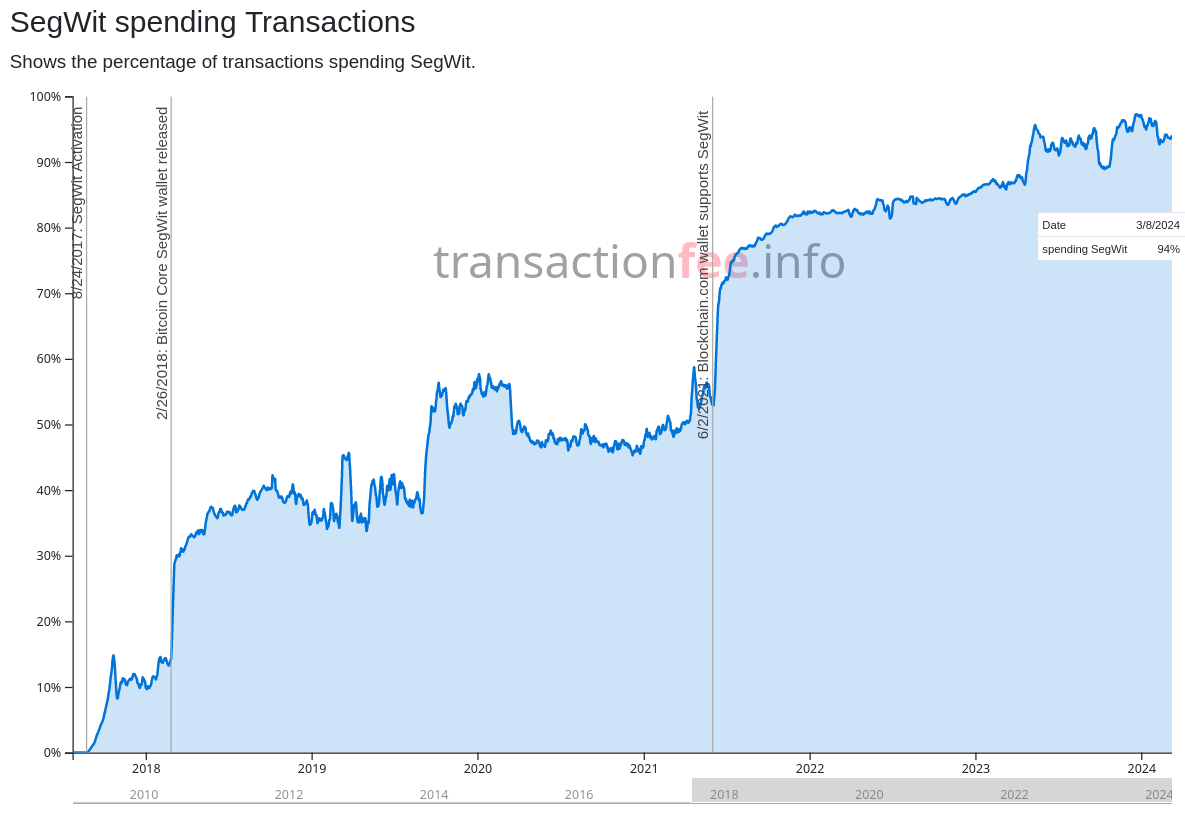Pre-segwit nodes consider segwit transactions non-standard and will not accept them to their mempool and therefore also not forward them. They would only participate in relay of unconfirmed non-segwit transactions. At this time, about 94% of transactions use at least one segwit input.

Therefore, pre-segwit nodes would see a small fraction of unconfirmed transactions. This would potentially reduce the bandwidth-use of such a node, since segwit peers would also not forward unconfirmed segwit transactions. Segwit is backward- and forward-compatible in the sense that pre-segwit nodes would still process the most-work blockchain, since they would assess segwit transactions as valid even while non-standard, and arrive at the same chainstate. They would however be incapable of assessing validity of segwit transactions and be essentially relegated to blindly trusting that the most-work chain is in fact valid due to not processing witness data. This would open pre-segwit nodes up to accepting a chain of invalid blocks designed to enable doublespend attacks on such nodes. A pre-segwit node may also have significantly skewed feerate estimation, due to seeing such a small portion of the queuing unconfirmed transactions.
Bitcoin Core 0.12.1 was released in November 2016 and has been end-of-life since late 2017. Beside all the performance improvements in the last 7 years, also fixes to security issues discovered in the project that may affect that release have not been backported. It is unclear what benefits a user might expect running a client this old. If the motivation is the bandwidth-use reduction, they could achieve the same and more by running in -blocksonly mode with a maintained version. If they explicitly want to only relay legacy transactions, I suspect that a small patch could change a node’s behavior that would make the node present itself as a non-segwit node without actually downgrading to unmaintained software.
Nodes that don’t participate in the relay of unconfirmed transactions would generally be slower in propagating new blocks since they would not be able to make use of compact block relay. Bitcoin Core’s peer manager protects a few of its peers from eviction by merit of that peer having been the first to offer a new block lately. I suspect that even if a super-majority of nodes (e.g. 90%) switched to pretense non-segwit behavior, the remaining nodes would form a well-connected compact-block-relay backbone that would be hardly affected at all.
My suspicion would be that any users running either the outdated node software, or a pretense non-segwit node would mostly downgrade their own experience without affecting other nodes much.
If miners downgraded to only mining non-segwit transactions, they would pick from a smaller pool of unconfirmed transactions while passing on the higher feerate segwit transactions in the mempool. This would lead to their own block-rewards being reduced to the benefit of miners that do not participate.
Overall, I do not see any benefits to this idea beyond it perhaps giving the adopter a fuzzy feeling of doing something, and since all the downsides apply to the adopters themselves, I wouldn’t worry whatsoever if I saw some people implement it.

